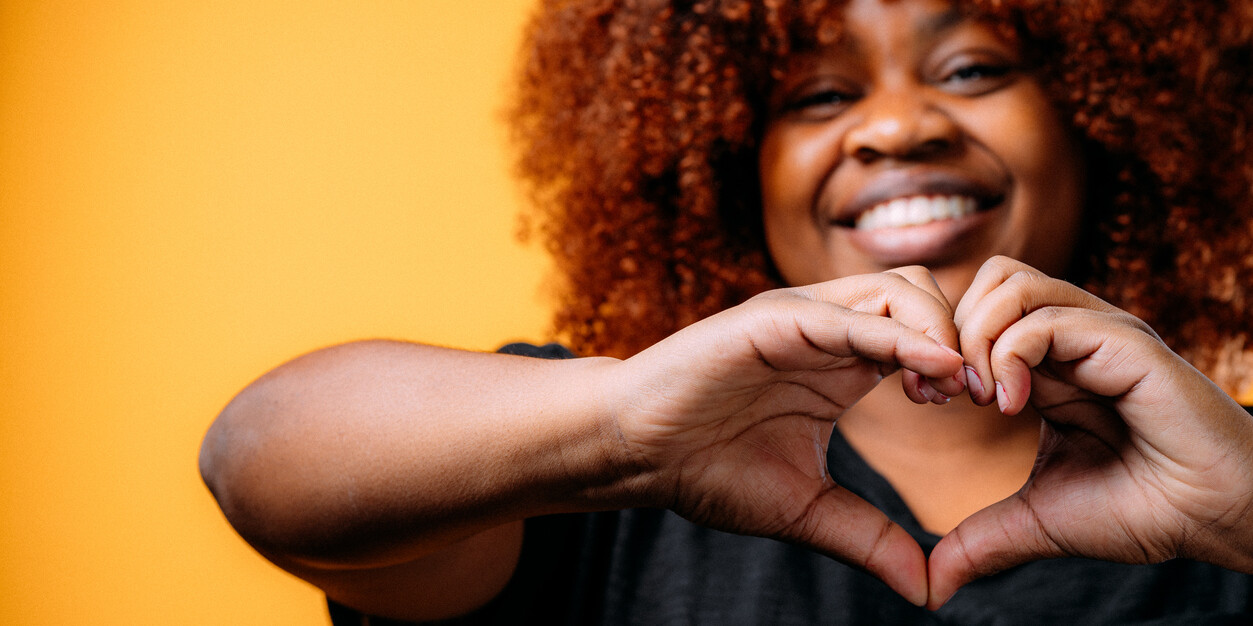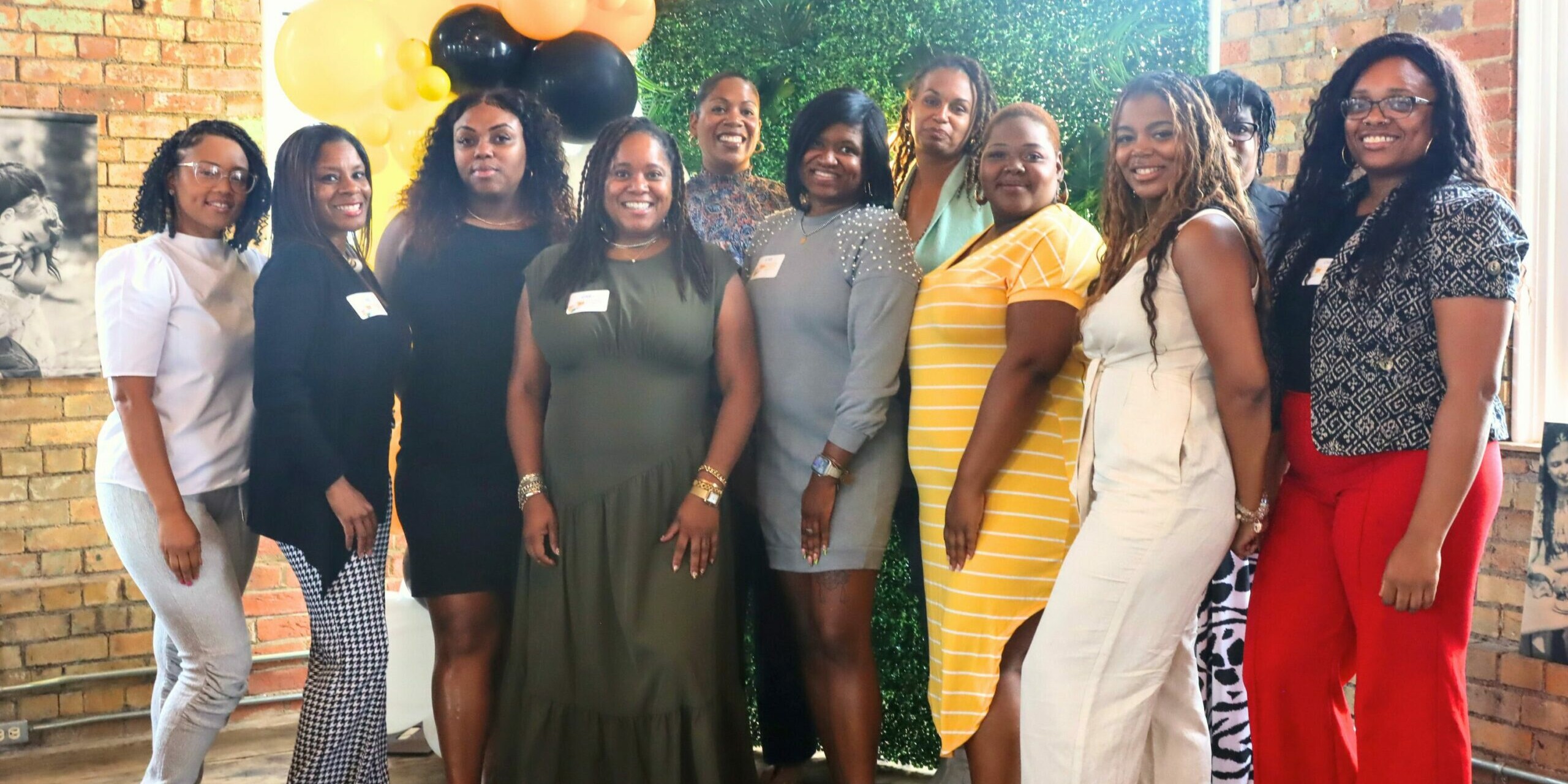Disclosure: May is Maternal Mental Health Month. I am joining AHN Women and Chrissy Teigen to help launch a social cause initiative to reduce the stigma of postpartum depression and anxiety, and to encourage an open dialogue around it to continue supporting moms who may be suffering – #MyWishForMoms.
Hi my name is Heather, and I suffered from what I thought was just baby blues. Days after delivery, I lost my appetite even though breastfeeding drained my energy and calories. I experienced mood swings, much worse than the monthly menstrual related irritations and discontentment. For the first time, anxiety kept me up at night, pressing my chest and tightening my throat. I felt extremely guilty for not raising my daughter under the same roof as her father and worried about my future as a single mom.
A doctor told me that I wasn’t alone. Most moms experience something similar. The change in my hormones and the emotional and physical stress of childbirth triggered the change in my mood. Fortunately, the feelings only lasted a few days, maybe a few weeks. One day, I no longer viewed my life through blue lenses. The color returned.
But for some moms, the blue becomes gray. In fact, one in every seven mothers experience postpartum depression each year – that’s more than 513,000. That’s more than the number of women diagnosed with breast cancer— almost twice as many. But unlike cancer, moms aren’t seeking treatment. Only 15 percent of women get help for postpartum depression.
Single Mom Defined Member Tori did.
Having already been diagnosed with general anxiety, I knew going into my pregnancy that I would be predisposed to postpartum depression. I told my family and friends what to look for and how to help me so they could be a safety net. One of my good friends shared her personal story with postpartum depression, and because of her courage to share, I was able to get the help that I needed before things could get bad. ~Tori
And the other 85 percent, like Natasha, suffer in silence and in solitude.
I didn’t realize that’s what it was. Since I didn’t know what my feelings meant, I foolishly kept them to myself. My support system was very small, mostly because I was scared to relinquish control and didn’t trust that people would care for my child correctly. Now, I know I can’t do it alone all the time. I can’t pour from an empty cup. I’m no good to myself or her if I’m running on fumes. ~Natasha
Yvette was surrounded by a village–literally. She gave birth in Ghana, and women circled her, singing sweet lullabies to her baby, cooking daily meals for her family and cleaning every corner of her home. Despite this, no one really understood her pain.
Every single day. I cried along with my son, who cried constantly. My son’s father didn’t understand at all. He constantly gave me herbs and advised me to “just pull it together.” The women thought I had no reason to be “sad.” I lost my hair, my identity and drive. ~Yvette
When she became even more ill, she returned to the US. Like in Africa, no no one told her she had postpartum depression. Not one doctor. Not one therapist. This, despite postpartum depression and anxiety being real, treatable medical conditions that can affect anyone.
Every single day. I cried along with my son, who cried constantly. My son’s father didn’t understand at all. He constantly gave me herbs and advised me to “just pull it together.” The women thought I had no reason to be “sad.” I lost my hair, my identity and drive. ~Yvette
Over time, Yvette picked herself up, with the help of her faith in God and her mother who also didn’t have the language for what was happening. Yvette made vegan meals, juiced every day and managed her pain with natural remedies. She even became a certified yoga instructor.
Now, Yvette and I are teaming up to ensure moms like Natasha aren’t suffering solo or navigating any single parenting obstacle alone. Our wish for moms is that the color returns to their lives.
One mom even shared anonymously that she knew she had postpartum depression, but never told her doctor. I wouldn’t dare with being in the military. I could have lost my security clearance. I didn’t have friends who were comfortable getting in that depressed space with me.
And our online post seeking stories was flooded with many more moms wanting to share.
With other members of Single Mom Defined, Yvette and I are launching a support group–with a babysitting co-op and meal swap service. And most importantly, mentors for moms–moms to call, text and visit each other and connect families to the resources they need to not only survive but also thrive.
We may be single, but we should never feel alone! That’s our wish for moms!
AHN Women developed MyWishforMoms.org – an educational resource for moms and families to learn about maternal mental health and how to get help should they or a loved one need it. We encourage you to visit the website, spread the word, and complete this sentence in social media posts #MyWishForMoms is…
Photography Credit: Omari Souza and Robert Waters, Motor Mouth Multimedia, for the Single Mom Defined Art Exhibition. Tori’s photo credited to Crystal Joy Photography.
Heather
Not long ago, Heather Hopson lived in the Cayman Islands and hosted a television show. Today, she’s back home in Pittsburgh writing a different type of story as the founder of Motor Mouth Multimedia and Single Mom Defined. Utilizing more than a decade of television news reporting experience, Heather assembles teams to tell diverse stories, provide unique perspectives, and increase the visibility of important issues for local and national clients. In 2018, Heather, inspired by her daughter, produced Single Mom Defined, a photo essay and video series that provides a more accurate definition of single Black motherhood than the one society presents.
Heather obtained a BA in Journalism from Michigan State University, where she served as president of the Delta Zeta Chapter of Alpha Kappa Alpha Sorority, Inc.




To never ever think that you are alone. To understand and get the help you need to take care of you and your baby. Please keep in mind that you are not CRAZY. Seek help and guidance.
I myself suffered as well with postpartum depression. After my son I felt alone and I felt like I didn’t have anyone so I turned to food in the late night hours I would wake up and eat I put on 50 lbs I couldn’t even help myself it was my comfort. I would do it while everyone was asleep my kids would ask what happened I was a mess I would lie and say I was sleep walking and just of eaten out of my sleep. I went to support meetings at weight watchers because I wanted help but that was my again comfort although I didn’t feel comfortable within myself at all I was very uncomfortable with how I was poking but even more than that how I was feeling. I was the biggest I had ever been. I didn’t have any motivation to work out or do anything expect stay in the house and isolate myself. I was very very depressed. Finally I had enough and I wanted to take my life back and with prayer and My kids I got active ass much as I could and I started to work out and eat better and pray and workout and shake a healthy mind and body. So to this day I lost 60 lbs and have kept it off. I didn’t take meds I did go to therapy just a few sessions but it was nothing nobody could do I had to snap out of it and come to myself and the realization that I had postpartum depression and I wasn’t gonna let it control me any more.